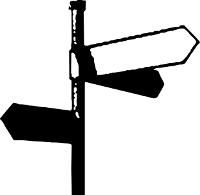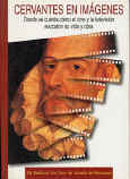Seven years after the first edition of this book and due to the heightened interest in the figure and work of Cervantes during the last years, a revision of the text has become necessary. Furthermore, new works have been discovered in this short period - works that had been forgotten in the film libraries all over the world. While we could present references to 177 works in the first volume, by now we can already speak of around 330. Among them one encounters television versions, short films and full length- features, works with an experimental character, animations, documentaries, experiments and fictional films. Some of them true to the original, others freely inspired by the Quijote and other novels by Cervantes. In general, works that contradict the old prejudice concerning the bad relation between Alcalá's famous author and the seventh art.
Since the very beginning of cinematographic history, Miguel de Cervantes has been the object of dozens of approaches that have - some more fortunate than others - tried to translate his incomparable prose and his novel-like biography into the universal language of images. This new and expanded edition of Cervantes in pictures: How cinema and television adapted his life and oeuvre is nothing but an attempt to reveal this almost centenarian relation, a relation that has mostly remained - despite the historical interest - in discrete oblivion.
This book is structured into four different parts. The first part describes distinctive formats and genres in an ample and general way. By doing so, it focuses mainly on animation cinema, the short film, television etc. The second part focuses on films about the author and his most famous and influential books. The part offers a more detailed and profound insight via numerous recollected texts and texts that have been originally written for the book. An exhaustive bibliography including Spanish and foreign publications and an ample filmography (accompanied by various publications) complete the book.
Cervantes in pictures presents, for a good part of the book, distant evocations, truthful adaptations, free inspirations and various references to which the creator of El Quijote has been the object during this century that is now reaching its end. His oeuvre is and will continue to be a font of inspiration and essential reference for an art that is - among other characteristics - narrative and searching through the water of literature in order to tell stories.



